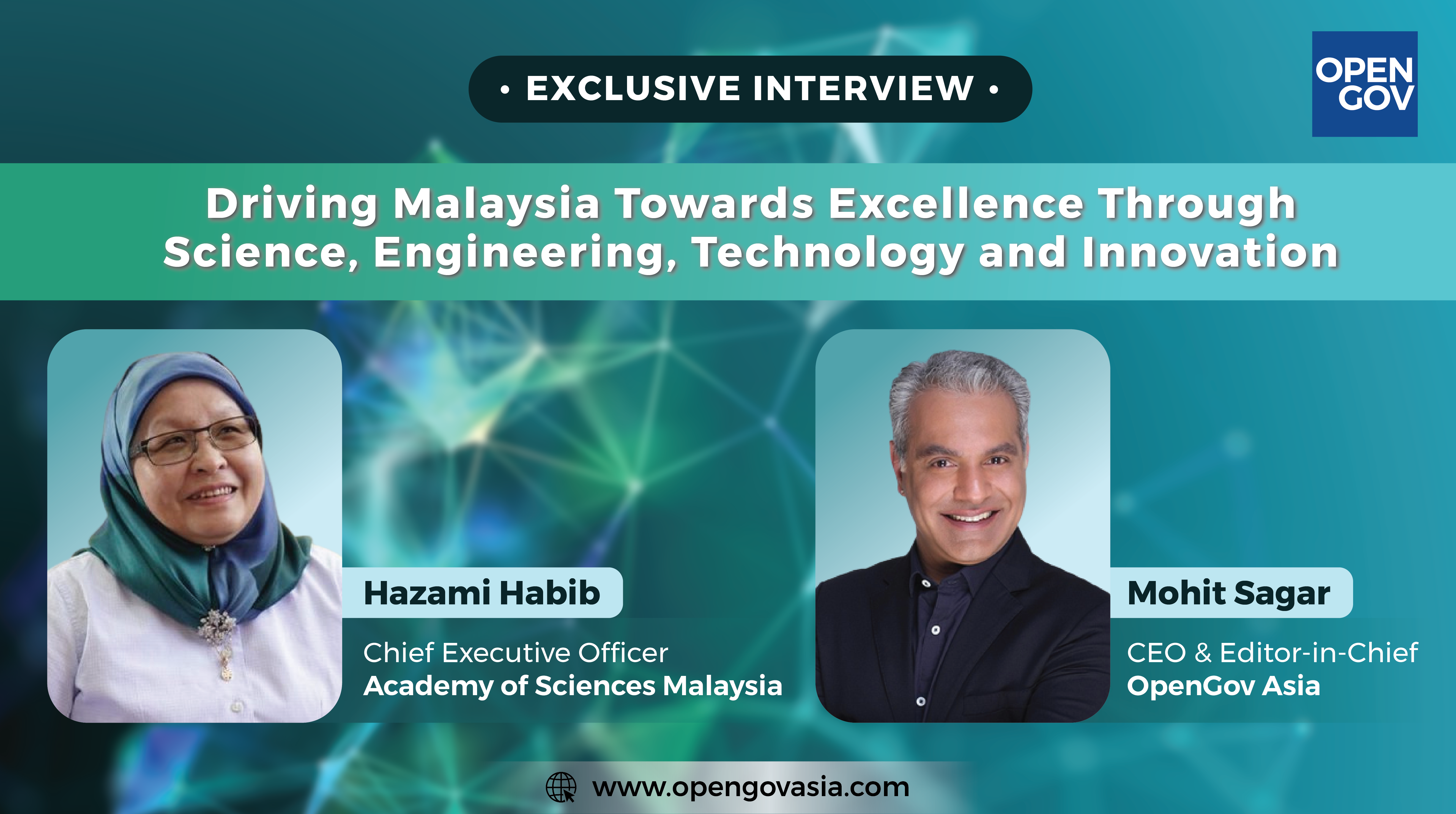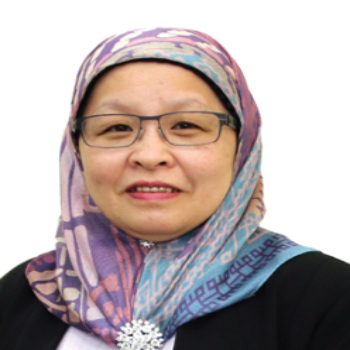
Science, engineering, technology, and innovation give people the power to develop a country and its quality of life. Investment in these areas is vital for economic growth and social progress.
Research and development in smart tech can help build greener cities with better access to essential systems and services for all. Moreover, infrastructure development, technology transfer and public and private R&D must be supported and regulated by good policies if they are to work.
To ensure scientific progress is encouraged and embraced at all levels of government decision-making, the Academy of Sciences Malaysia (ASM) is tasked with giving strategic advice to the government and stakeholders, as well as pursuing excellence in science, engineering, and technology for the benefit of everyone.
Malaysia’s S.E.T.I. Initiatives
 Hazami Habib, Chief Executive Officer of the Academy of Sciences Malaysia, believes that bringing together experts from all fields of scientific, technological and humanities endeavour to address pressing national issues relating to science, engineering, technology, and innovation as well as to provide strategic input to the whole nation, the government will provide unrivalled public service.
Hazami Habib, Chief Executive Officer of the Academy of Sciences Malaysia, believes that bringing together experts from all fields of scientific, technological and humanities endeavour to address pressing national issues relating to science, engineering, technology, and innovation as well as to provide strategic input to the whole nation, the government will provide unrivalled public service.
One of the contributions of the ASM is to incorporate interactive learning of STEM into the pedagogy of education in Malaysian schools. “To see the performance and results, inquiry-based science education (IBSE) will create an interactive learning environment in the physical classroom. Therefore, we want to have this kind of ecosystem and environment in schools.”
She is eager to see more collaboration between tertiary education and industry so that any courses and curricula provided by universities are both industry-required and future-proof. This is why their organisation is working with the government to create collaboration between industry and academia. “I believe that will help us advance more.”
ASM is currently working with the Malaysian government, in particular the central agency, to begin evaluating public decision-making universities based on data. Hence, using facts, metrics, and data to inform strategic business decisions that align with goals, objectives, and initiatives is the most effective data-driven decision-making.
Making data-driven decisions the norm within an organisation is necessary to foster a climate that values scepticism and curiosity. “Data is the starting point of conversations at every level, and people improve their data skills through practice and application,” says Hazami.
At its core, this calls for a self-service model where users can access the data they require while maintaining a balance between security and governance. Additionally, it necessitates proficiency, resulting in opportunities for training and development for workers to acquire data skills.
Additionally, ASM has developed a Responsible Conduct of Research module which acts as a benchmark to have this code of ethics in research taught to all graduates, whether they are in hard sciences or the social sciences.
“We want that because every piece of knowledge we incorporate in the future will be based on good science and value. Therefore, we must consider bioethics, biosecurity, and training modules on ethics in research,” Hazami explains.
ASM has recently directed its scientists to provide solutions in close collaboration with the ministries. Citing as an example is their committee on water, energy, health, agriculture, and biodiversity (WEHAB++). For instance, when Malaysia faces issues such as the price hike for chicken feed which causes societal dissatisfaction, solutions to food security issues such as this can be provided by the Academy’s expert network through science and technology directly to the government and stakeholders.
In addition to providing policies and strategies to decision-makers, the ASM also teaches them how to carry out those policies and strategies by applying their knowledge.
Hazami highlighted the growing movement called “Open Science” which aims to open scientific data and research to the public. In addition to democratising knowledge, the international principle of making research data findable, accessible, interoperable, and reusable (FAIR) will support open scientific inquiry and integrity, facilitate improved research management, and encourage data-intensive research.
Unprecedented insights and solutions to local, regional, and global complex challenges are made possible by integrating numerous data streams and enormous datasets across numerous disciplines.
Through the Malaysia Open Science Alliance, the Ministry of Energy, Science, Technology, Environment & Climate Change (MESTECC), now known as the Ministry of Science, Technology, and Innovation (MOSTI) and the ASM are laying the groundwork for the realisation of the Malaysia Open Science Platform (MOSP), a strategic transformative project to strengthen Malaysia’s STI Collaborative Ecosystem.
“The Malaysia Open Science Platform or MOSP aims to connect raw research data, then collaborate and share,” Hazami explains. “By creating a reliable platform that enables accessibility and sharing of research data aligned to national priorities and international best practices, this initiative seeks to transform Malaysia’s research data into a valuable national asset.”
Future-Focused Nation-Building
Hazami is passionate about science and technology because it has the power to change the nation. “I’m attempting to make a change, and one of those changes is in the area of science and technology.”
For her, the most meaningful contribution in her 26 years in the academy was when the government accepted 80% of their recommendations for transforming and creating change and an ecosystem. “For now, our current areas of focus are strengthening governance, the innovation ecosystem and the sustainability of R&D funding.”
A change in paradigm towards a growth mindset among policymakers, scientists and the younger generations is her greatest challenge and greatest passion. She believes that when decision-making is based on data, it can provide the best solution possible.
Hazami strongly believes that Malaysian women are more than capable of pursuing careers in science and technology. They hope to have a strong support network to help them succeed in those fields, whether as practitioners or scientists.
“Our goal is flexibility. We need to have an open work environment and open innovation because we can work from home as researchers and scientists. We are more adaptable now. If we can accomplish this, more and more women will contribute to the workforce more effectively,” she says emphatically.
By reaching out to the top management and demystifying technical terms, OpenGov Asia, a steadfast supporter of Malaysia’s digital transformation journey and an advocate for citizen-centric development, will continue to help bring about change. Hazami concludes by urging top leaders to practice a growth mindset for the betterment of the country.
Hazami strongly believes that over the course of the next five years, ASM will continue to serve as a catalyst for change and create the science, technology, innovation, and economy (STIE) ecosystem for the entire nation towards the full potential of digital transformation, including the Malaysian transformation and the humanisation of the economy. “Leaders’ courageous decisions pave the road to successful digital transformation.”
















